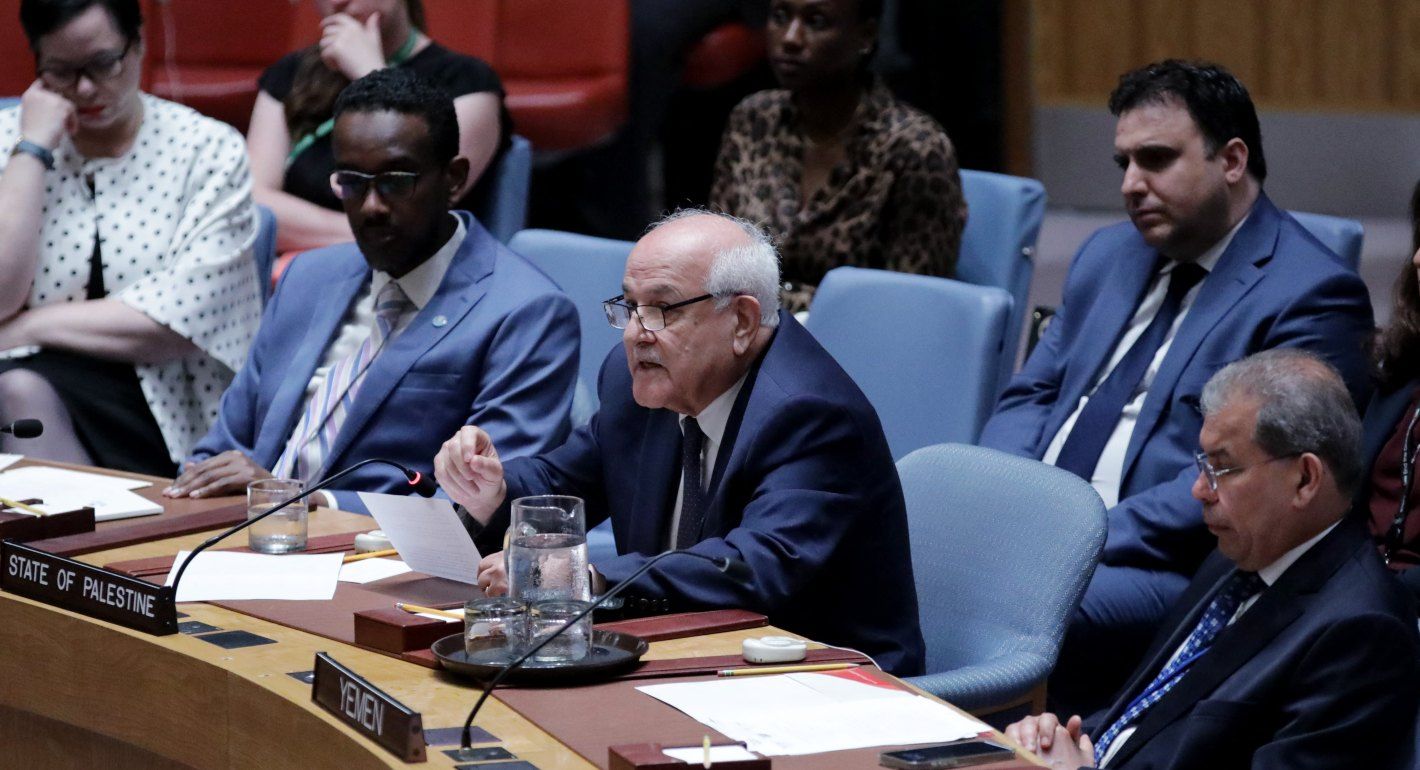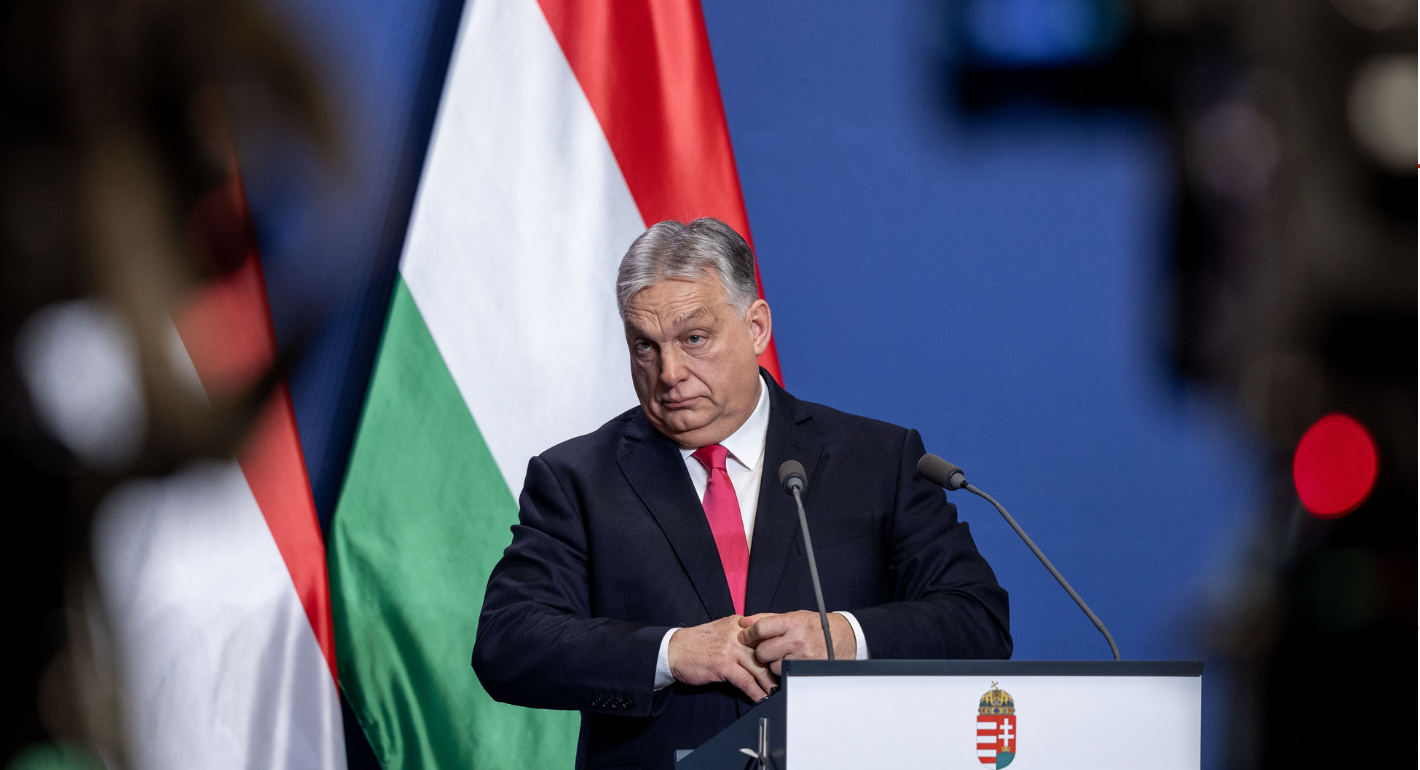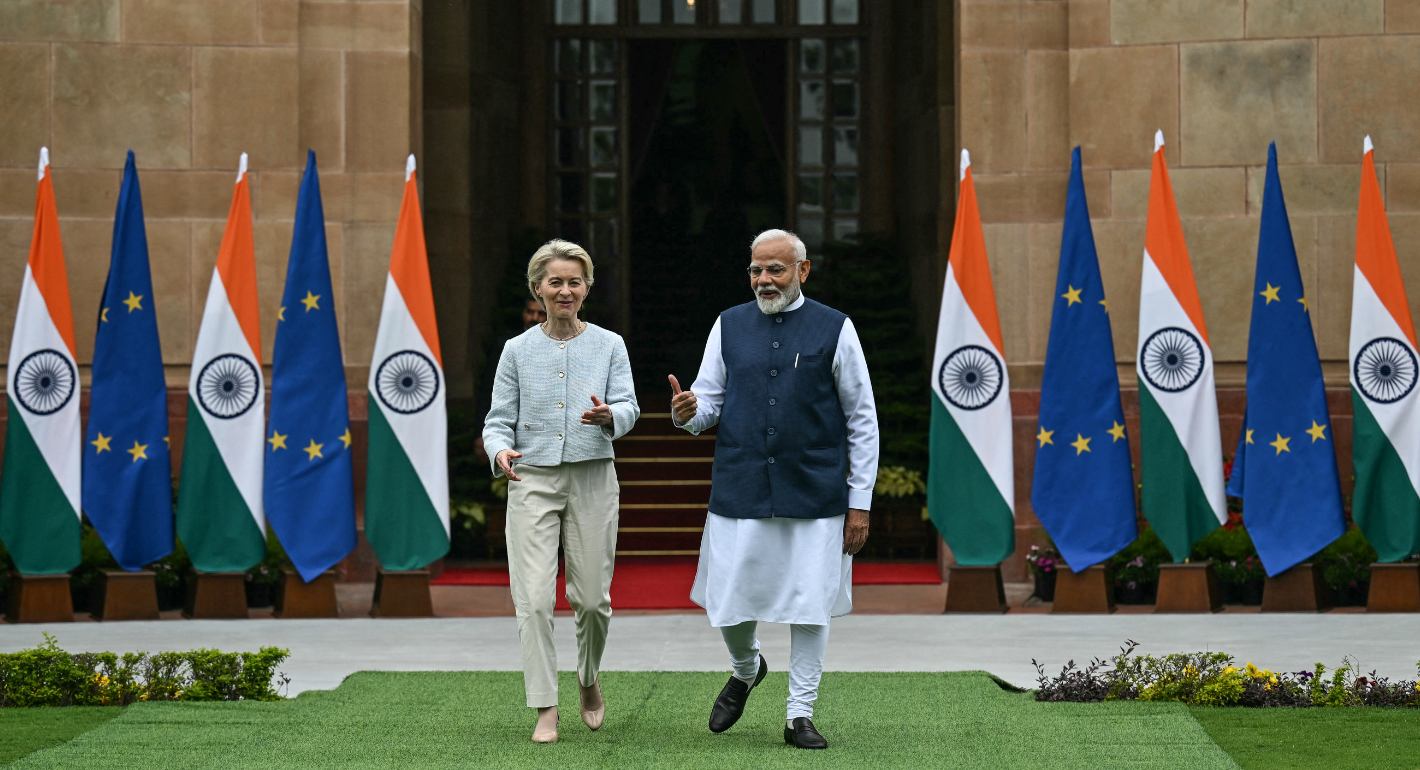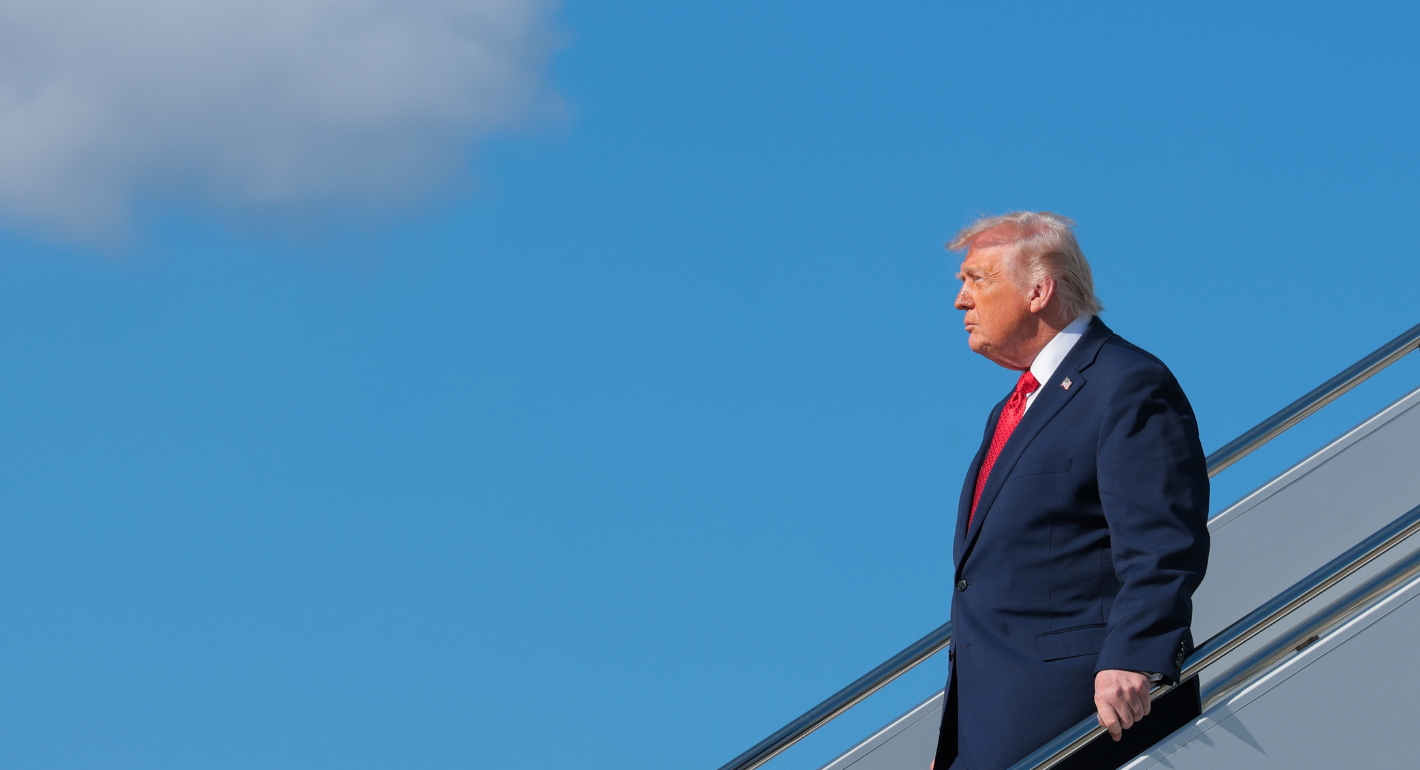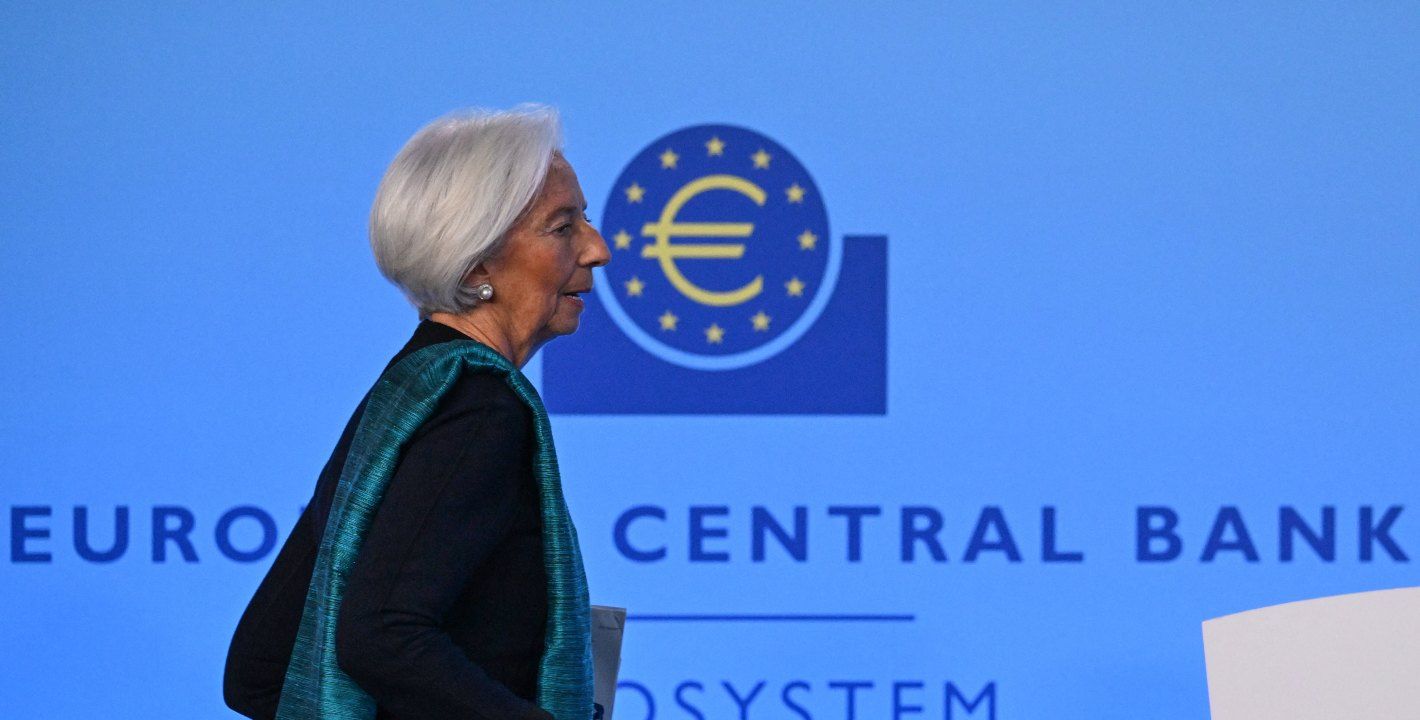For decades, the two-state solution for Israel and Palestine has been more of an incantation than a concrete plan to resolve one of the oldest and most damaging conflicts of modern times.
But next week, world leaders could finally commit to a time-bound action plan focused on creating quick, irreversible facts on the ground to turn a Palestinian state into reality and provide both Palestinians and Israelis with more security.
The Kingdom of Saudi Arabia and France are co-chairing a “High-level International Conference for the Peaceful Settlement of the Question of Palestine and the Implementation of the Two - State Solution” at the UN headquarters in New York between June 17 and 20. It is the most serious concrete plan to begin resolving the conflict since the Arab Peace Initiative of 2002.
There, countries that have made repeated statements in favor of peace and a two-state solution will have to move past empty heartfelt wishes and start delivering concrete steps to turn that wish into a reality. With the simultaneous radicalization of both Israeli and Palestinian societies and ascendance of the Israeli messianic right creating facts on the ground at pace to make a Palestinian state a geographic impossibility, no one has the luxury to pass up on this opportunity. The conflict is standing on the precipice of the point of no return.
Like all potentially historic turning points, it is a low-probability, high-impact event that is facing considerable headwinds, but one worth pursuing. Over the next week, diplomats will be in overdrive to secure the breakthroughs still needed, first among which is a crucial American step to impose a ceasefire in Gaza—without this, nothing can move forward. Second, European and G7 states like France, the UK, and Canada will need to take the irreversible step of recognizing the State of Palestine. And finally, Arab countries will need to commit to providing the means to stabilize the Palestinian territories and eventually normalize relations with Israel, if a Palestinian state does become a reality and Israel’s de facto annexation of Palestinian territories stops.
It has now become clear that stakeholders must compel both Palestinians and Israelis to get serious about resolving the conflict. And only bold, disruptive, and uncomfortable steps by the United States, Europeans, and Arabs can provide that breakthrough to snatch the ultimate prize: finally achieving peace.
There is currently an alignment of political stars with leaders uniquely equipped to do just that.
U.S. President Donald Trump is the only American leader in decades who has the freedom and ambition to be the disruptive game changer needed on this. The United States has long been more of a party than a mediator in the conflict and changing that requires going against deeply entrenched orthodoxy in Washington.
Saudi Arabian Crown Prince Mohammed bin Salman has given himself unique leverage as the only player with something Israel really wants: normalization—even at the cost of a Palestinian state. The political will and commitment displayed by leading Arab countries is unprecedented. This includes willingness to contribute to a stabilization mission inside the Palestinian territories to ensure the protection of civilians.
And French President Emmanuel Macron overhauled his diplomatic approach away from performative speeches to focus on delivering a concrete structure for Arab leaders and Trump to work through to achieve peace.
The letter sent by Palestinian President Mahmoud Abbas to Macron and Bin Salman on June 9 is the first achievement of monthslong Arab and French diplomatic efforts.
In this letter, Abbas commits the Palestinian Authority to much-needed reforms, including some he has long resisted. This includes holding presidential and general elections “within a year […] to rejuvenate the Palestinian governance.” Crucially, he also pledges to hold these elections “based on a new party legislation” that would only allow “political forces and candidates that clearly accept the Palestine Liberation Organization platform” to run. That is meant to ensure that Hamas, the perpetrators of the October 7 terrorist attacks against Israel, is sidelined.
Abbas also states, for the first time, that “Hamas will no longer rule Gaza and must hand over its weapons and military capabilities to the Palestinian Security Forces, which will oversee their removal outside the Occupied Palestinian territory, with Arab and international support.”
Over the next week, the United States, Europeans, and Arabs must build on the momentum of this important first step by the Palestinian Authority.
The reason why next week’s conference is not yet another Hail Mary based on wishful thinking is because it is conceived as an implementation conference, not a process conference. As the concept note for the conference states: The aim of this international conference “would not be to ‘revive’ or to ‘relaunch’ another endless process, but to implement, once and for all, the two-State solution.”
The outcome document diplomats are negotiating is meant to be action-oriented instead a list of feel-good principles with no impact on the ground.
By focusing on deliverables feasible over the next two years, such as reforms, elections, the disarming of Hamas, and deployment of a stabilization mission, instead of attempting once again to start by resolving the intractable issues of land swaps and refugee returns, the Franco-Saudi approach aims to deliver change as quickly as possible.
While there is no escaping addressing the thornier issues later, if the current approach succeeds in producing effective Palestinian governance and durably weakening armed groups like Hamas and the messianic Israeli settler movement, it will help facilitate compromises.
This is a unique moment for Europeans and G7 countries who are still undecided—mostly because they fear U.S. and Israeli reactions—to show leadership and agency. While the United States remains the kingmaker, it is reliant on the Arabs and Europeans to provide the necessary on-the-ground and capacity-building commitments.
Ultimately, this is the only path to real security for both Palestinians and Israelis, despite the increasingly inflammatory statements by Israeli Prime Minister Benjamin Netanyahu and some of his ministers amounting to ethnic cleansing. France is providing the necessary stewardship but needs its partners to turn this initiative into a game-changing moment.

